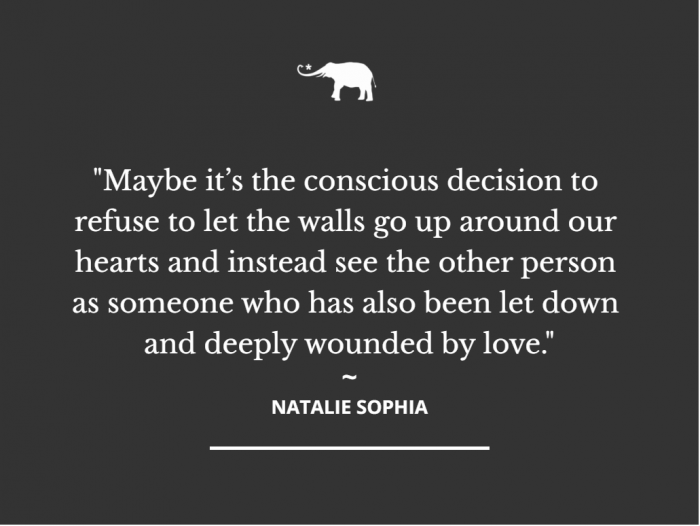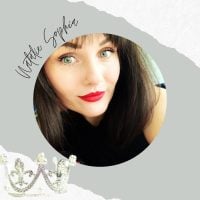View this post on Instagram
At the end of the day, we all just want to be loved.
So why do we hurt one another so deeply? Therapists might say that we often hurt the ones we love the most because there is an underlying sense of safety we feel, while others might say it is because those who mean the most to us can have the biggest impact on us.
I’m not sure what our deal is as a species really; all I know is that I am tired of hurting for love.
Love is one of the greatest gifts that we can be given in this life. It has the power to energetically lift us off the ground, hearts pounding, blood pumping, exhilarating glory as we bask in the glow of the love we feel with another. Love, in the truest sense of the word, has the power to heal our deepest darkest fears, transform our mindsets, and take us to places we never dared to explore. It can feel invigorating and enlightening, addicting and intoxicating.
Choosing to love someone can also hurt deeply and lead us to toxic cycles with a person who is not emotionally prepared to take that risk with us. It can lead to feelings of disconnect and nausea at best and utter withdrawals at worst. Suddenly we become the addict that steals our own joy by abandoning ourselves in favor of choosing the other person simply to get another “hit” because our brains have become so hardwired to the dopamine and oxytocin that floods our body.
In my book, Girl, You’re a Queen, I write extensively on the impacts that heartbreak can have on our physiology and psychological well-being. For instance, the human brain is designed to seek patterns. Patterns are what create consistency in our lives. The drive to create new patterns in intimate relationships occurs when we meet a potential love interest.
The fantastic neurotransmitters dopamine and oxytocin kick in and increases our heart rates, dilates our pupils, and gives us the butterflies in our stomachs. We get “rewarded” by our brains every time we are with the person we love, and even when the initial stages of the relationship begin to wear off, we still get our hits of dopamine and oxytocin whenever we are around them.
We go from a life of being single to suddenly a life with someone that we tell ourselves will be with us until we are old and grey. This routine can continue for a period of weeks, months, or even years, but when the pattern of our life is disrupted and someone decides to end things, this can lead to feelings of full-on devastation.
Suddenly, your source of the feel good neurotransmitters is depleted and the same response in the brain is similar to that of an addict going cold turkey off of cocaine. The reward system of the brain is halted and this can sometimes lead to crazy behavior (hello Facebook stalking and late-night texts). You might find yourself depressed, unable to stop crying, nauseated, ravenous, agitated, anxious, and in some extreme cases, suicidal (if you do, please call 800-273-8255), and for good reason. Your supply was cut off.
If you ask me, love is one of the biggest risks and one of the most intoxicating energies we can experience with another, but when that love is not returned, valued, or cherished, it becomes all too easy for hatred to take its place. Hatred can feel good to an overstimulated and underfed ego. It leads us to judge the other person for not doing better or being a better human being, and in some ways it anesthetizes our pain.
Like the gaping wound that bleeds uncontrollably, judgment serves as the Band-Aid to our grief. Deep down we all know that loving someone feels far better than hating them, but most of us also know that it is a fine line.
I feel like it’s safe to say that all of us truly just want to be loved and give love in return. So how do we keep our hearts open and keep putting love on the alter when someone does something that hurts us deeply? In her book, The Judgment Detox, Gabby Bernstein writes: “We put enormous effort into hiding our vulnerability, but it’s our vulnerability that truly heals. When we feel safe enough to expose our shadows, that’s when we become truly free.”
Hatred is a form of protecting our vulnerability. If we love someone deeply and we are served a fresh, warm platter of hurtful actions and behaviors from them in return, vulnerability becomes increasingly difficult to digest and leads us to put up defenses in order to keep ourselves protected. I do not say this as a person of perfection; in fact, I am the least perfect person at staying vulnerable when faced with adversity. Remaining vulnerable when I feel slighted is like trying not to bleed after being cut. To me, it requires a lot of self-awareness and the willingness to catch myself in the moment, but again it’s a practice that I am still working with.
In all honesty, I feel like truly loving someone is a practice that most of us have not been sufficiently equipped to deal with and so many of us will spend our lives hiding our vulnerability rather than risk our hearts for the uncertainty of love. Loving someone requires a choice to stay vulnerable and a tremendous amount of courage that not everyone is ready to step into.
So maybe we are hurt by the ones we love the deepest because they are the ones who see the real us, open hearts, wounds exposed, and shadows turned into light. And maybe like Gabby says, being vulnerable is what will ultimately lead to keeping our hearts open in the end.
Maybe it’s the conscious decision to refuse to let the walls go up around our hearts and instead see the other person as someone who has also been let down and deeply wounded by love.
Maybe if we choose to remain vulnerable after the hurt, love can somehow still feel safe, after all.
~
~












Read 0 comments and reply